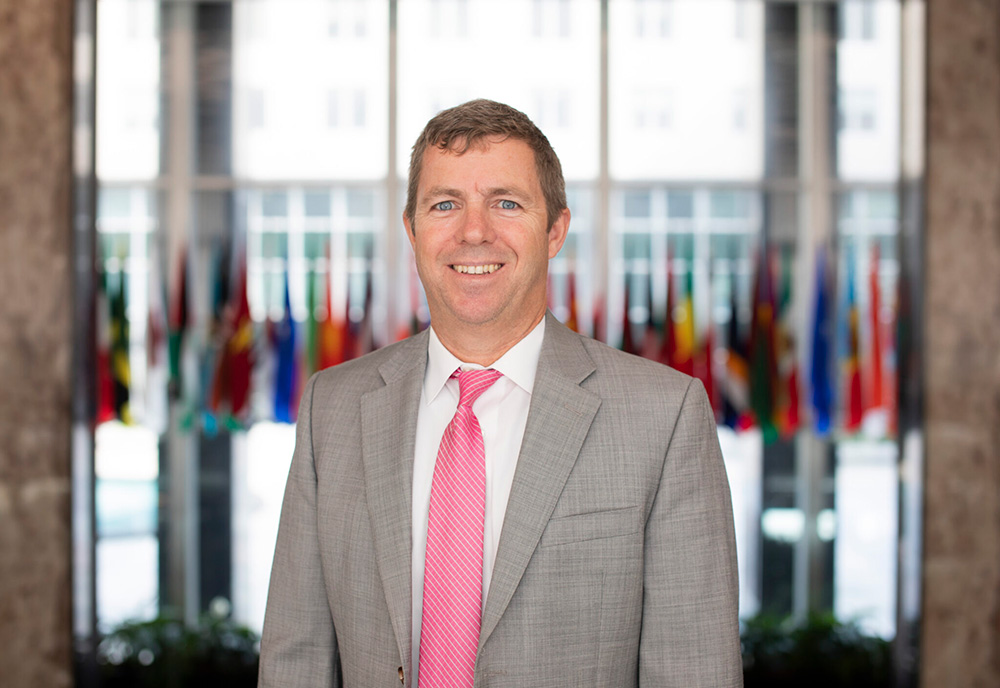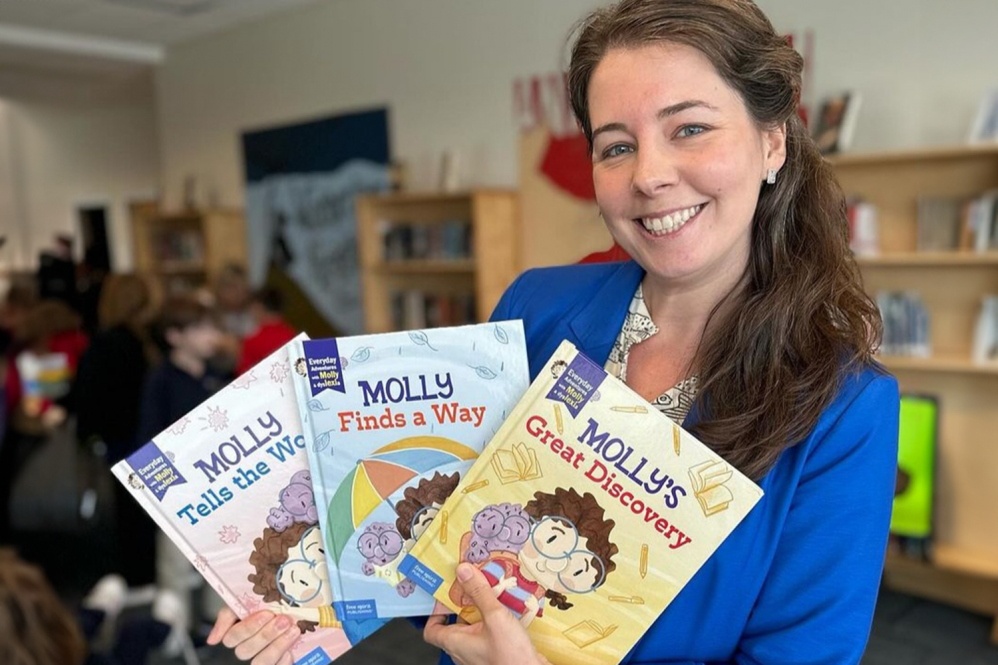McMahon on a Mission
 Study abroad in Spain his junior year led to Matt McMahon’s job running the Sports Diplomacy Division at the U.S. State Department.
Study abroad in Spain his junior year led to Matt McMahon’s job running the Sports Diplomacy Division at the U.S. State Department.
Matt McMahon’s office walls prominently feature a Team USA pennant, a baseball card of Masanori Murakami (Major League Baseball’s first Asian player), and the front page of the Boston Globe after the Red Sox won the 2018 World Series. Appropriate decor, for a man who helps run the State Department’s Sports Diplomacy Division.
As the department’s deputy director in its Office of Citizen Exchanges, McMahon ’89 (CLAS), ’94 MA facilitates international meetings, events, and mentorship programs between Americans and foreigners in five primary areas: sports, culture, technology, youth programs, and global leadership.
“I’ve burned through four or five diplomatic passports over the years,” he laughs, listing nations he’s visited including Australia, China, and Egypt.
Go Huskies
The Vernon, Connecticut, native keeps up with his Watson Hall roommates to this day. During the Huskies’ men’s basketball national championship game in April, “we had a text message chain going during commercial breaks.”
Sports has been a throughline of their friendship across the decades. “We used to go out on the quad and play tackle football during the first snowfall of the school year.” In 2017, they reunited for the UConn-Boston College football game at Fenway.
A political science major, McMahon says it was study abroad in Granada, Spain, his junior year that spurred his desire to work in international education and exchanges professionally.
After graduation, he spent a few years working for non-governmental organizations focused on international education and exchanges, which is where he met his wife. Although she graduated from William & Mary, McMahon brags that he converted her to UConn sports fandom.
After returning to Storrs for a master’s in international affairs, McMahon moved to Washington, D.C., for a job at the Asia Foundation and eventually landed at the State Department … the month after 9/11. “It was just surreal, but you definitely had a sense of purpose,” he says of that tension-filled autumn. “It was very meaningful. And [Secretary of State] Colin Powell was a great leader for that time.” He had a knack for making every employee feel needed, McMahon says. “I recall him talking about the custodian who looks beyond the menial tasks of a job description to see how their work can create the environment and conditions for others in the organization to succeed. At a time when I was just starting out at the State Department, he made me feel that even I had an important role to play in accomplishing U.S. foreign policy goals, and it’s stuck with me ever since.”
What Is Sports Diplomacy?
What do the five divisions under McMahon do?
- The sports division has deployed women’s soccer superstar Alex Morgan to Tanzania and Baseball Hall of Famer Cal Ripken Jr. to the Czech Republic, teaching children how to play their respective games.
- The tech division enlists American private sector Silicon Valley leaders to help foreign journalists, civil society advocates, and NGOs use technology to better coordinate, spread their messages, and improve lives on the ground.
- The cultural division recently sent musical icon Herbie Hancock to conduct jazz workshops in Jordan.
- The “global leaders” division pairs foreign government leaders, like mayors, with top Americans in relevant fields like education and law.
- The youth division sends thousands of American high school students to other nations for a summer or year, and brings foreign teenagers here to live with host families.
These programs can pose logistical problems, particularly with every violent geopolitical development. Last year, McMahon worked with Ukrainian students who were on a one-year exchange program, attending a public high school and living with host families. In many cases, the students were not able to go back. His team worked to extend their stays, even partnering with the American Camp Association to fill the time between school years with summer camp opportunities.
Whether Russia can compete at the 2024 Summer Olympics in Paris is up to the International Olympic Committee, but McMahon’s office has made its position known. “International sporting competitions should not be platforms for Russia to rally domestic and international support for its brutal war against Ukraine.”
Study Abroad
Most of his foreign visits involve bilateral meetings in white-walled conference rooms, with little chance to soak in local culture. McMahon does recall a few notable exceptions, though.
In Argentina for a meeting about the Fulbright international educational exchange program, McMahon was on a horse riding excursion with some American participants, when his horse brushed up against an electrified fence. “All of a sudden it bucked and threw me off,” he remembers. “Somehow I landed without breaking a bone.” (His prior horseback riding experience consisted solely of a childhood pony ride at The Big E, the Eastern States Exposition in western Massachusetts.)
After a 2011 summit in Indonesia, he stayed for an extra day after the planned meetings were over, and he and a colleague rented mopeds and cruised all around Bali. “Stopping at a temple, overlooking rice paddies,” McMahon reminisces, “just hanging out and meeting people.”
Wherever he goes, McMahon is reminded that America has soft-power influence at a level other countries cannot approach. “People all over the world listen to American music and watch American sports,” McMahon says. He argues that the person-to-person contacts he facilitates foster mutual understanding across borders in a way that foreign visits by senior officials like the President, Vice President, or Secretary of State never quite could.
“With their talents and their experiences,” he chuckles, “the people we use are often better representatives of the United States than we in the government would be!”
By Jesse Rifkin ’14 (CLAS)